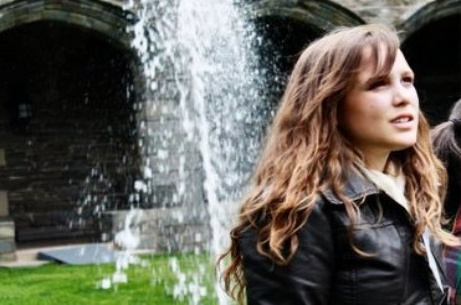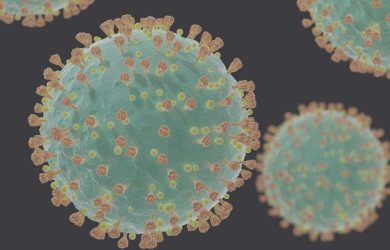
Brielle Stark will study how the brain reorganises to recover language after a stroke.
Brielle Stark’s uncle suffered a bad stroke in her first year at university. Indeed he still has no movement on his right hand side. “I observed that and saw the effect that his road to recovery had on my family,” she says. “It had a big impact on me.”
Such a big impact that it has influenced the subject of her research at the University of Cambridge where she will begin a PhD in Clinical Neurosciences in October.
Brielle is the first student at Bryn Mawr College in Pennsylvania to be accepted as a Gates Cambridge scholar. Her PhD will focus on trauma recovery, specifically clearer methods of language recovery and clinical neurorehabilitation following stroke.
She has been interested in disability awareness from a young age. “When I was 12 I convinced my parents to let me volunteer on a programme for children with autism,” she says. “At 14 I took part in a recreational camp for children with disabilities and did so for the next six years. I have always been interested in disability from an equality perspective and the importance of seeing the person first rather than seeing their disability as a defining factor. It’s part of my interest in psychology and an interest in how people perceive each other.”
Brielle, who was born in Princeton and moved to Ohio when she was 11, comes from a socially engaged family. Her mother is associate dean at a small community college and runs an alternative university programme in prison and her father, who is retired, teaches in prison.
She says she learnt early how to study and that helped free up her time for voluntary work. “I am very much a visual and oral learner,” she says, “and by knowing early on that I learnt best by speaking things out, I freed up time for other things.”
At high school she played Varsity soccer and got involved in the Red Cross. She was impressed by the way it involved youth volunteers and has been a member ever since, drawn by how it engages the community’s youth and makes them feel they can have an impact locally and nationally. She currently sits on the Leadership Team of the American Red Cross National Youth Council.
At Bryn Mawr College, she wanted to study something that was medically oriented, but wasn’t sure whether she was more drawn to being a doctor or to doing research. She chose to study psychology and was particularly interested in the action of medicines and therapies on the brain. Her interest in neuroscience was heightened by her experience of her uncle’s stroke and the time she spent with individuals with acquired head trauma at the recreational camp.
As part of her course she had the opportunity to study experimental psychology for a year at St Anne’s College, Oxford University, although she says she was more drawn to abnormal psychology such as post-traumatic stress disorder and depression. For her undergraduate thesis she has been focusing on memory processing, using neuropsychological examinations of the brain to find out what is going on in the brains of young adults when they make subjective judgments about “how” they remember something, ie whether something is recalled with details or without. Using electroencephalography [EEG], she has beenlooking for the neural correlates of this subjective judgment in recognition memory, focusing on regions within the frontal, parietal and medial temporal lobes.
She says the technology can only show the general location of the activity, but it is very good at depicting the time it takes for memory to occur. “It happens extremely fast,” she says.
Her experience at Oxford, which included being the Men’s First Boat Coxswain at St Anne’s (which won blades in Summer VIIIS 2011), and particularly of the one-to-one tutorial system made her look around on graduation for other opportunities in the UK. “I had enjoyed myself so much in the UK and a member of the American Red Cross National Youth Council lives in London and was looking to set up youth consortia in different countries. I intend to become involved in the British Red Cross,” she says.
At Cambridge she will study stroke patients and specifically how the brain changes and reorganises in order to recover language. “The aim is to find out the most successful recovery mechanisms so that we can use them to better inform rehabilitation,” she says.
She sees her Red Cross and research work as complementary. “My research is about fixing a specific problem whereas my work with young volunteers in the Red Cross is about creating a better future. Both teach me about leadership.”












